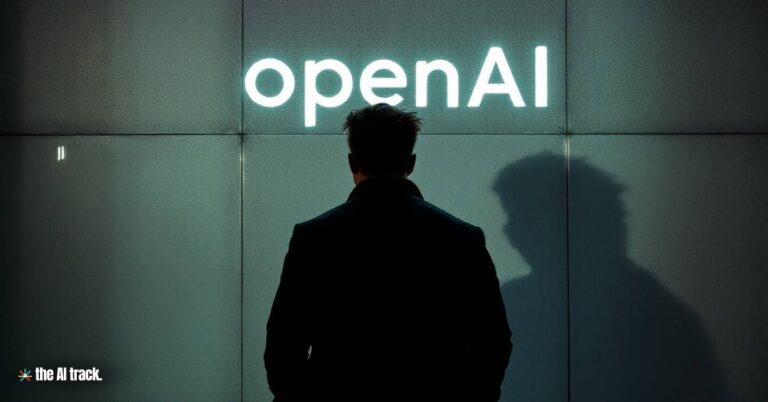OpenAI is expanding media collaborations: The latest deal with Hearst is another step in OpenAI’s broader strategy to form strategic partnerships with prominent media companies like Condé Nast, Axel Springer, and others. By integrating high-quality journalism and curated content into AI products like ChatGPT and SearchGPT, these collaborations strengthen OpenAI’s competitive position, ensure legal compliance through proper citations, enhance content reliability, provide users with expanded real-time access to trustworthy information, and supply quality data for training its AI models.

OpenAI is expanding media collaborations – Key Points
- Latest Collaboration with Hearst:
- OpenAI’s most recent partnership is with Hearst, integrating content from Hearst’s extensive collection of newspaper and magazine brands into OpenAI’s AI platforms. This includes prominent titles like the Houston Chronicle, San Francisco Chronicle, Esquire, Cosmopolitan, ELLE, Runner’s World, and Women’s Health. This collaboration spans over 20 magazine brands and 40+ newspapers, providing ChatGPT users with trusted content on topics such as lifestyle, health, fitness, automotive insights, and local news.
- Hearst’s leaders, including Jeff Johnson (Hearst Newspapers President) and Debi Chirichella (Hearst Magazines President), have emphasized maintaining the integrity and credibility of the integrated content, ensuring it remains trustworthy and well-curated.
- This partnership includes citations and direct links to original Hearst sources, ensuring transparency and proper attribution.
- Previous Partnerships and Deals:
- Condé Nast Collaboration: OpenAI has also formed a multi-year partnership with Condé Nast, integrating content from well-known brands such as Vogue, Wired, and The New Yorker into ChatGPT and SearchGPT. This partnership followed the launch of SearchGPT, aimed at competing with traditional search engines by providing real-time information.
- Roger Lynch, CEO of Condé Nast, highlighted the importance of fair attribution and compensation in this collaboration.
- Axel Springer Partnership: The partnership with Axel Springer integrates content from notable publications like Bild, Die Welt, and Business Insider. This collaboration aims to offer reliable, real-time news content while ensuring proper compensation and content attribution for Axel Springer.
- OpenAI gains access to Axel Springer’s archives, enhancing the quality and timeliness of information provided to users.
- Vox Media, The Atlantic, and Other Collaborations: OpenAI has expanded its partnerships to include Vox Media, The Atlantic, and the World Association of Newspapers. These collaborations enhance content integration into OpenAI products and may provide preferential positioning in AI outputs, akin to other tech-related agreements.
- Notable partners also include AP, BuzzFeed, Financial Times, Microsoft, and Reddit, enriching the AI’s training data and real-time content capabilities.
- Time and Financial Times Partnerships: OpenAI’s earlier agreements with publishers like Time, Financial Times, and AP provided access to extensive archives, which support AI model training and real-time information retrieval. These partnerships position OpenAI as a competitor to traditional search engines, aiming for dominance in real-time content delivery.
- Condé Nast Collaboration: OpenAI has also formed a multi-year partnership with Condé Nast, integrating content from well-known brands such as Vogue, Wired, and The New Yorker into ChatGPT and SearchGPT. This partnership followed the launch of SearchGPT, aimed at competing with traditional search engines by providing real-time information.
- Focus on Trustworthy and Curated Journalism:
- Emphasizing professional journalism, these collaborations maintain the integrity of content integrated into AI products, ensuring information provided to users is both credible and well-attributed.
- Notable media leaders like Jeff Johnson (Hearst) and Debi Chirichella (Hearst Magazines) have highlighted the importance of maintaining editorial integrity and credibility in AI content.
- Roger Lynch (Condé Nast) and Axel Springer have stressed the importance of balancing technology integration with fair attribution and proper compensation for content use.
- Transparency and Attribution:
- OpenAI will provide citations and direct links to original sources, offering users easy access to the original articles and ensuring proper attribution for partner content.
- Scope and Market Strategy:
- These collaborations include strategic partnerships with Hearst, Condé Nast, Axel Springer, and others, facilitating content integration while ensuring fair compensation for media partners.
- These agreements position OpenAI as a significant player against traditional search engines, aiming to provide real-time content delivery in addition to AI-powered assistance.
- Notably, OpenAI’s agreements with publishers like Time, Financial Times, and the AP have helped the company gain access to extensive archives, which support AI training and real-time information retrieval.
- Broader Trends and Industry Impact:
- While OpenAI’s collaborations are an example of evolving relationships between AI companies and traditional media, some media entities, like The New York Times, have chosen litigation over partnership, reflecting the ongoing debate around content ownership and use in the AI age.
- Partnerships with major media brands, including Vox Media, The Atlantic, and the World Association of Newspapers, may also provide preferential positioning in AI outputs, akin to other tech-related agreements.
Why This Matters:
OpenAI’s partnerships with established media brands mark a transformative approach to integrating high-quality, curated journalism into AI. While this move aims to ensure that users receive reliable, diverse, and professionally verified information, it also raises potential future challenges regarding content ownership and disputes over the legality of data acquisition for model training. By fostering collaboration over confrontation, OpenAI and its partners are attempting to set a precedent for how AI platforms can work alongside traditional publishers to ensure credible content remains at the forefront of digital innovation, enhancing user experience and bridging AI with trusted journalism.
Read a comprehensive monthly roundup of the latest AI news!
The AI Track News: In-Depth And Concise
Sources
- OpenAI and Hearst Content Partnership | OpenAI, 8 October 2024
- Strategic Content Partnership with TIME | OpenAI, 27 June 2024
OpenAI partners with Condé Nast | OpenAI, 20 August 2024
Partnership with Axel Springer to deepen beneficial use of AI in journalism | OpenAI, 13 December 2023
- Global news partnerships: Le Monde and Prisa Media | OpenAI, 13 March 2024






